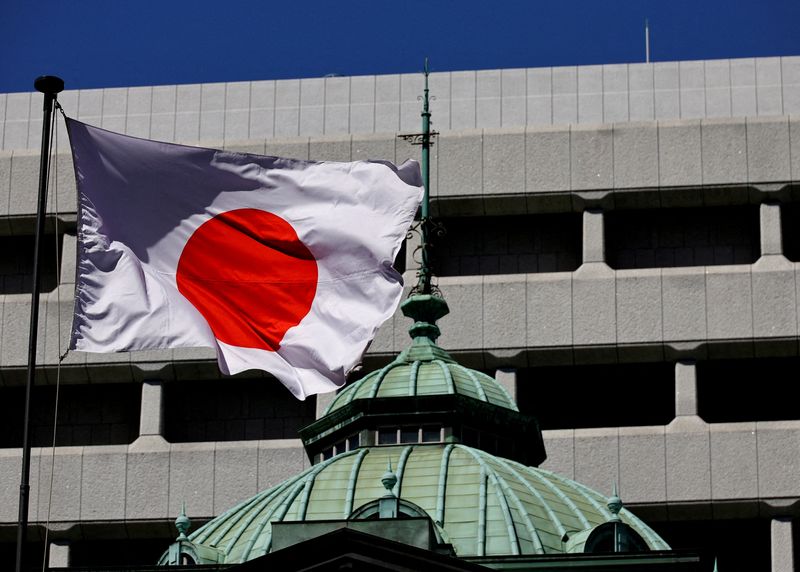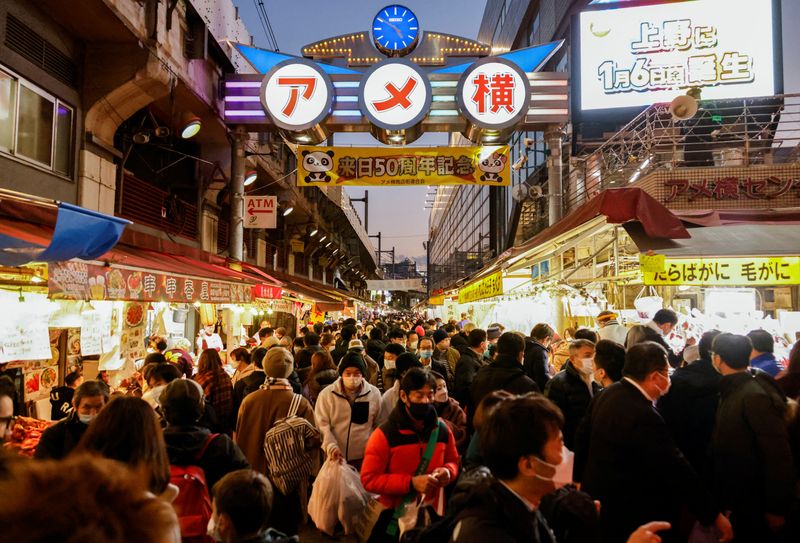By Leika Kihara
TOKYO (Reuters) -Japan's core inflation accelerated for a second straight month in June, data showed on Friday, extending a more than two-year run above the central bank's 2% target and keeping alive market expectations of a near-term interest rate hike.
But more than three-quarters of economists polled by Reuters expect the Bank of Japan (BOJ) to hold off on raising rates this month as soft consumption weighs on a fragile economy.
"Demand-driven inflationary pressure remains weak. In fact, price rises caused by higher import costs are reducing real wages and dampening consumption," said Takeshi Minami, chief economist at Norinchukin Research Institute.
"There's no change to our view that any rate hike won't come until October at the earliest," he said.
The core consumer price index (CPI), which strips away the effect of volatile fresh food prices, rose 2.6% in June from a year earlier, slightly below market forecasts for a 2.7% gain.
It followed a 2.5% gain in May and exceeded the BOJ's target for the 27th straight month, due partly to a 7.7% jump in energy costs reflecting a reduction in utility subsidies.
A separate index that excludes the effects of fresh food and fuel costs, closely watched by the BOJ as a broader price trend indicator, rose 2.2% in June after a 2.1% reading in May.
The data will be among the factors the BOJ will scrutinise at its policy meeting on July 30-31, when the board will release fresh quarterly forecasts and debate whether to raise rates from current near-zero levels.
At the meeting, the BOJ will likely project inflation to stay around its 2% target in coming years, sources have told Reuters, signalling its readiness to push up borrowing costs.
The BOJ exited negative rates and bond yield control in March, in a landmark shift away from a decade-long radical stimulus programme.
BOJ Governor Kazuo Ueda has dropped hints the central bank will push up rates further if rising wages and services prices heighten prospects for durably achieving its 2% inflation target.
Some analysts feel that conditions for a rate hike are already falling into place.
Friday's data showed service inflation perked up to 1.7% in June from 1.6% in May, a sign companies continued to pass on rising labour costs through price hikes.
"Looking ahead, we expect underlying inflation to remain around 2% until early-2025, which we think will prompt the Bank of Japan to hike rates both this month and in October," said Marcel Thieliant, head of Asia-Pacific at Capital Economics.
A weak yen complicates the BOJ's policy path. While it pushes up import prices and broader inflation, the currency's fall has hurt households by making food and fuel more expensive.

Some members of a top economic council warned on Friday that the government should not overlook the pain a weak yen and rising prices were inflicting on households.
"There are limits to how much companies can hike prices if consumers can't keep up," said Yoshiki Shinke, chief economist at Dai-ichi Life Research Institute. "The key is whether wage hikes and tax cuts would help lift currently weak consumption."
